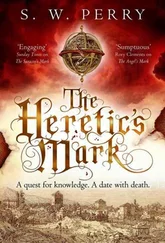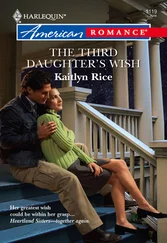Goody Corwin did not acknowledge the speaker but said to me, “When you get hungry enough, we’ll talk again.” She gave my chin a squeeze and left us so that Sheriff Corwin could fasten the locks once more. When she had gone, I whispered to the woman next to me, “Why did she want our clothes? Is she so poor?”
The woman snorted, “Her? She’s tighter than a tick with money. She’s got more coin than all of us put together. She barters us with food for our clothes and then sells them at market for coin, saying the clothes are from the bodies of the unclaimed dead.” I shivered deeper into my shawl, thinking I would never barter with the sheriff’s wife, no matter how weakened I became from hunger.
The afternoon brought no visit from Father and I was able to get to the bars only a few times to speak to Mother. There was a growing flutter of fear within me as the day passed and the words “seven days, seven more days” ran again and again through my mind. Despite my earlier intentions, I made a promise to myself that when the sheriff’s wife next came I would offer her every bit of clothing in trade for ten minutes in my mother’s cell. When I called across the corridor to the men’s cell, asking Richard about Andrew, there was a long pause before he spoke. Finally he answered, “Andrew is bearing up. But he is worse today than yesterday. I fear his wound is festering and the poison has entered his body. Without proper care…” He paused, leaving me to imagine what was to become of Andrew without clean water to wash his wounds or salve to stop the poison from spreading.
NIGHT CAME AND Tom and I ate our hard bits of bread and finished the water in the skin. The air was warmer than it had been and despite all my worries I fell quickly into a dreamless sleep. Sometime during the darkest hours before dawn I heard loud shouts from the men’s cell for the sheriff to come. The shouting went on and on but it was hours before we heard his footsteps lumbering down the stairs. He lived with his wife in the upper floors but would never come down before morning unless the cells had caught fire and smoke was rising from his floorboards.
I heard the men’s cell being opened and pleading voices asking for help. Soon the door to our cell opened and there on the threshold, holding up a slumped figure between them, was Richard and an older man. They dragged the sagging figure further into the straw, and when they laid him down, I saw it was Andrew. I clung to Richard but he was pulled quickly out by the sheriff, who locked him back in his cell. When the sheriff returned, he said to Tom and me, “The doctor comes on Saturdays. If he’s still alive by ten of the clock, he’ll have a look. There’s better light here and here he’ll stay until then.”
Several of the women came to help us bathe Andrew’s face with a few drops of our precious water taken from the common barrel and loosen his clothing. His manacles had been pried open and removed, so his arms were free. They would not have been removed had he been expected to live. He had a raging fever, which made his face dark and livid like the raw liver of a deer, while his scars from the pox were pitted and white. When we pulled back the sleeves from his shirt I caught my breath, for on his right wrist where he had been bound and tortured was a festering wound that seeped with a yellowish matter. A band of bright red under the skin traveled up his arm from the wound. One of the older women put her nose to the wound and sniffed.
“It’s poisoned,” she said. “Once the red reaches past his shoulder…” She paused, shaking her head. “He’ll die if the arm doesn’t come off.” Someone else whispered, “He will die if it does.”
“Doesn’t come off. Doesn’t come off.” The words rattled around in my ears but I could not make sense of them until I looked at Tom’s face and saw the horror in it.
We stayed by Andrew’s side until the doctor came in. He was a narrow, spindly man who shooed us away as though we were a brood of cottage fowl. He lifted Andrew’s arm and studied the line of red, shaking his head all the while. He turned to me and said, “Your brother, the tall one in the cell across, said that I would be paid in coin for care tendered.” I looked at him, not understanding, but Tom said, “My father will pay. When he comes.”
“Very well,” said the doctor. “I’ll come back tonight. The arm must come off and right away. And mind you, afterwards, I’ll expect to be paid whether this one lives or not.” When he stood up to leave, I looked down at Andrew’s face and was startled to see his eyes open, looking at me. Eyes filled with pain and with understanding. For hours we sat with Andrew and tried to comfort him. He cried and shifted about and said over and over, “I’ll be good. Don’t take my arm. I’ll be good.” When I could stand it no more, I threw myself against the short bars and cried out, “Mother, what can we do? What can we do?” The answer came to me, escorted by the shadows from the condemned cell, floating insubstantial and piecemeal like a waving tendril of smoke in the corridor.
“Make your best good-byes to him, Sarah. Be with him. Help him to be strong. Give him comfort.” I heard no more words from her, only the sound of weeping. The bitter kind that comes when a child is to depart the earth before the one who gave him birth.
Soon Andrew’s crying stopped as he dropped into the sleep of the desperately ill and Tom and I took turns holding his head. Some of the women came to offer advice or to give us prayers in place of hope. Some of the women came only to look and be comforted that someone else was closer to death than they. When the noon hour arrived and the families of the jailed pressed into the corridor, Reverend Dane appeared, bringing bread and meat and a small pot of soup for us. The sheriff let him into our cell, and when he bent down to look at Andrew, I wanted nothing so much as to throw myself into the comfort of his arms and plead with him to take me with him when he left. He put his hands on our heads and blessed us with great tenderness. Then he pulled Tom and me closer to him and said quietly, so as not to wake Andrew, “Your father comes tomorrow with more food and with warmer clothing. He does not know how very sick is Andrew or he would have come with me this day. I fear that when he comes tomorrow Andrew will be gone from us.” As though he had heard the whispers, Andrew shifted and groaned in his sleep.
The sheriff called out from the door, and as the Reverend rose to leave, he said, “Have faith in God, children. Andrew’s pain is soon to be over.” He reached out to place a hand on Tom’s shoulder, but Tom pulled abruptly away. His face was dark with anger and with some stubborn resentment, and I wanted to cuff his ears for refusing a kind hand. But the greatness of the man was in his understanding of the human heart, and as he looked around the tightness and darkness of our cell, he said to Tom in parting, “Faith is what saves us from despair, son. But anger will do in its place for now. I will go and see your mother. Shall I pass some message to her?”
“Tell her… Tell her…,” I began but could not finish. How could I give words of comfort or ask for them in return with the sheriff standing at the door to the cell, beckoning impatiently for the Reverend to leave. It would be like trying to build a raft to ride a storm-ridden ocean with only a few sticks to lash together. My swimming eyes turned back to the Reverend’s and paused there.
Squeezing my hands in his he said, “I will tell her, Sarah. I will tell her.” He gave a bag of food to his daughter, Goody Faulkner, and prayed over the heads of the women despite the sheriff’s harping. When Sheriff Corwin finally came to put a hand on the Reverend’s arm to make him leave, the look the sheriff got was surely as scorching as the look Adam received from the Archangel when he was driven from Paradise. The hours stretched on into the afternoon and Andrew’s fever continued to burn hot. He mumbled and murmured of things he saw behind his quivering lids. Sometimes he whispered and laughed. Sometimes he shouted and threw up his hands. But his words were not the words of a half-witted boy. They were clear and reasoned, as though the fire in his body had refined and sharpened his mind.
Читать дальше












